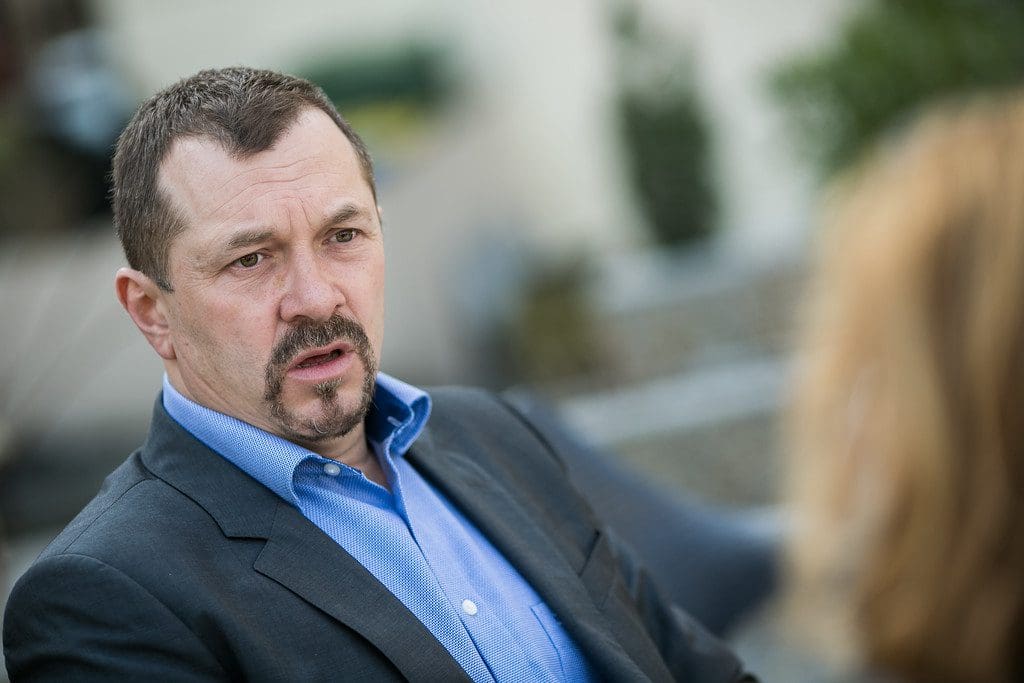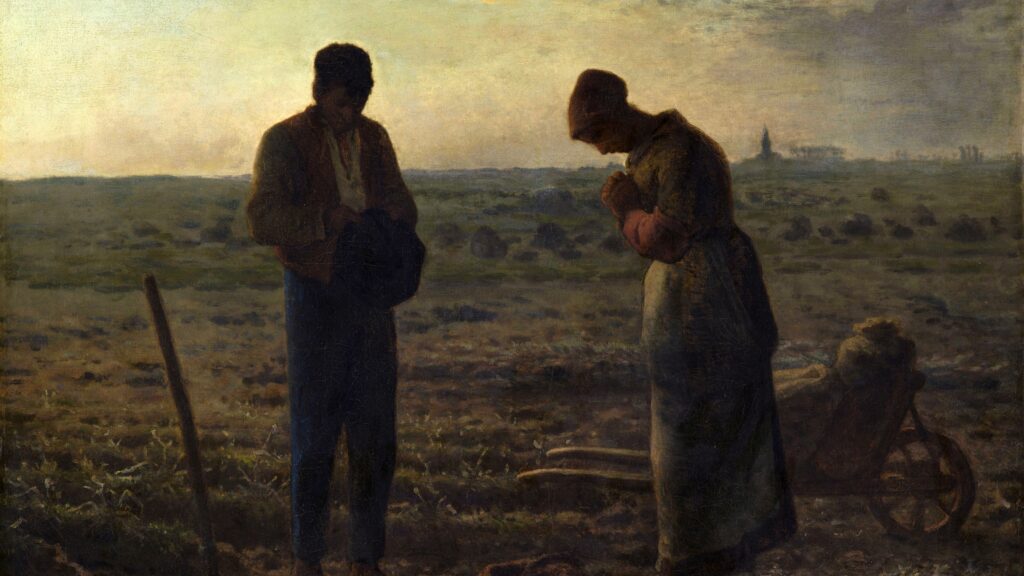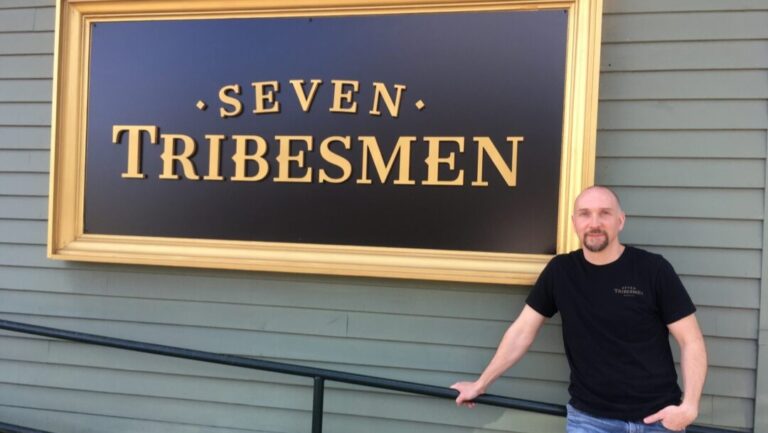In the first part of the interview (which is available here, and I strongly recommend reading it first) we introduced Men’s Club, a Hungarian online movement dedicated to helping men rediscover their masculinity and using it for the benefit of the whole of society. We talked about the true culture of patriarchy, the power of religious and traditional frameworks, why conservatism is seen as superior and why we have to return to it. Now, in the second part of the interview we go even deeper, to discuss the origins of the masculinity crisis, as well as the meaning of life—at least the meaning of a life that’s truly worth living.
If we look at the decline of the Western world on a civilisational scale, the question arises: which came first? The chicken or the egg, the decline of civilisation (and the rise of liberalism) or the crisis of masculinity? Which gave birth to the other?
The masculinity crisis is actually caused by several things, but it can be linked mostly to urbanisation and the changes in our lifestyle. In the past, the lifestyle itself provided a very rigid framework; the son did the same job as his father and his father before him. You could easily learn to do the right things by simply following in their footsteps. Men did a lot of manual labour, which didn’t make them rich, but they were able to produce their own food, build their homes and heat them during the winter, and they passed on that hard work from generation to generation.
This way of life as a framework has disappeared. Today we cannot even copy our parents because we are leading entirely different lives and there is no need to learn from them. We simply do a thousand different things at once and life in the city has become so comfortable that we have forgotten about what it means to overcome challenges. In the old days, we never had to consciously strengthen ourselves, because life forced us to do it. And now we realise that we have to do something, we have to straighten our spines consciously again, and it will be much harder than it used to be.
What about the cities of the past?
There were cities in the past as well, of course, but people always fell apart there, too. It’s just that they used to be proportionally fewer. Ninety-five per cent of the people worked the land in the countryside and they had religion and traditions to provide a framework from which they could not escape and which kept their society together. Those who then went to the city and lived this disintegrating life there would have had to keep themselves artificially preserved in the same way we need to do it today. That is what the nobility, for example, did, or the leading urban intelligentsia 200 years ago. They already knew that they had to consciously maintain this inner strength. The children of the nobility didn’t have to get up to dig in the manure, because there were enough people to do it for them. They were only able to strengthen their children by enrolling them in the toughest schools, educating them according to the toughest rules, and putting them through the toughest jobs. They didn’t have to, but they did it because they knew what would happen to them otherwise, that they would send their children off to a life of misery and unfulfillment.
Our problem today is that almost everyone lives like the nobles did then, but we don’t know how they did it. That level of consciousness is simply missing. It is nice, isn’t it, not to have to get up early or that I can do everything on my phone and have a lot of free time. It’s just that when you get married to someone, suddenly you find yourself incompetent for life. It’s when you have to rewrite your schedule, when you have to make compromises, when you have to bear with each other over and over again, and when you have to make plans that span your whole life and stick to them forever. All these require inner strength. Both to stand up for ourselves and to be able to compromise, to recognise when your partner is right. A man has to be able to fight for something and be able to retreat. It used to be a gift; a man instinctively knew when to speak up and when not to speak up. Today, weak men constantly quarrel, because weakness always breeds fear, and fear becomes aggression.
Is there a way to escape this downward spiral?
Because of urbanisation, there is now an incredible mass of people who are not held together by any lifestyle, any religious or traditional framework, but are let go to do as they please, and therefore all choose some kind of individual path of self-destruction. But there is a way out. We need to shift the focus back to conservatism again. If we want to avoid psychosomatic diseases, if we want to succeed in life, if we want to be respected by others and gain self-confidence and self-respect, we need the old community-sustaining frameworks of tradition and religion.
Tradition was not about the village way of life, it was about the way humans work
I talk and write a lot about how the wisdom of tradition can be just as much a part of the city as it was the essence of rural living back then. Tradition was not about the village way of life, it was about the way humans work. And if we kept those traditional rituals, for example, the framework of marriage, we would pass through certain initiation gates that would surely lead to a good marriage. If we throw that out because we think we are smarter than ten thousand years of collective experience, we are almost certain to miss out on a good match. If we manage to get back into these frameworks, we’ll once again find the superiority of conservative culture. First, we have to find our way to young people and tell them, listen, this is the secret to a successful life.
How do we know if our lives were successful?
This is a question philosophers have been asking for a long time, yet they have not been able to answer it. I’m just glad that I have, some twenty years ago. Life is successful if it leads to a serene old age. Let me explain. In old age, when you can’t turn things back, when you’re past your creative phase, it matters a lot what you see behind you. If you look back on your life, you have to see that you did everything that was in your power, and it was all worth it. You added something to the world. You made it better.
More specifically, what I see as the fulfillment that gives meaning to the life of every ordinary person is the transmission of life. Many people today think that true fulfillment comes with money and fame. But if that was the case, and only the lives of kings, generals, great artists, or famous scientists had had meaning in the past, humanity would have surely died out, because everyone would have been suffering from the same lack of motivation and depression as the masses today. Therefore, every single person had to feel that they had brought something incredibly important to the table. And the crowning achievement of every ordinary person’s life is that his life—which is short and ends in death—is building eternity through the future generations.
It sounds simple but also feels like an enormous challenge.
Building eternity is a daunting task, of course. We have to dedicate those thirty years entirely to making sure the next generation will continue to raise a better generation, which again will create a better world. Every single person can participate in this process, giving true meaning to everyone’s life. Raising children properly and consciously takes a lot of effort, but it also gives a lot of satisfaction, because it gives us incredible self-improvement opportunities. Raising children is the best school a person can ever finish.
In this sense, a serene old age is important because when I look back on my life and I see it in ruins, I know that I can no longer make amends. Look at how many old people we meet who bitterly say that their lives were a failure. And they have to live another twenty years in a personal hell from the age of, say, 65 to the age of eighty-five. They know that at 65 they can’t change any of those missed opportunities. They feel that they failed in life, and squandered their chance of being a strong link in the endless chain of past and future generations.
We must live in such a way that we can be a really strong link in this endless chain
Therefore, we must live in such a way that we can be a really strong link in this endless chain. This idea is a great self-motivating force, but it takes a long time to develop. To do this, every day when we face any challenge, we have to make a choice that will add to the quality of this chain, this link. And the quality of that link can be strengthened or weakened by 70 different things every day. Little things, like how we speak to the other person. Saying hello or not saying hello. Whether we put on proper clothes or we not. Being polite to someone or not. Do I let the other person go first or not. It all takes effort. But with each of these small efforts, I am making my environment a better place and, more importantly, setting an example for my child. I could always take the easier path that comes along, but I don’t so that my kids can learn, and that also makes me stronger. And that is a successful life. When at the end you can say that you have added something to eternity, that you leave behind something that is beyond you.
What about success in the workplace? Doesn’t our job also give our lives purpose and a sense of fulfilment?
It’s a lie that you can do that through your job. That you can be fulfilled at the workplace, that you can give life a meaning. All lies. Because whatever job you do, it’s still only one man, one legacy. It is useless to build a tower that will last a hundred years if you have not passed on to the next generation the knowledge and values that will make them respect your work. The next generation will simply come and destroy your material legacy along with everything else.
The responsibility and value of being part of the transmission of life as a family are incomparable to what the average person considers a success. Nothing, nothing can match it! Some people want to be ministers, others rock stars, professional racers, celebrities. But the vast majority will never be, and so they believe their lives are worthless. But to pass on life holds the possibility of infinite fulfillment, and those who recognize the value of it and choose to live by it it will look back and say that all the effort was worth it.
There is also something to be said about the fact that everyone’s life is full of sacrifices. We are constantly overworked, we have to battle diseases, and we lose our loved ones and friends. But if we make ourselves aware of what the meaning of life is – the continuation of life and becoming a strong link in the chain – then at least these sacrifices will not seem futile, but will make sense in the light of the purpose. But this thinking cannot begin at the age of 70, by that time it is all over. By the age of thirty or so we should have embarked on this path.
How do you measure the strength of this chain link? Is it enough to have children to lean back and say I have already passed on life and contributed to eternity?
Well, no. A lot of people think that if they have a child they have passed on life, but that’s not the case because we, humans, are sentient beings. Animals work like that. When an animal is born, it already knows almost everything it will know when it dies, so it can’t learn much. Humans are creatures capable of infinite things, with infinite learning and development potential. And therefore, when you have children, you have indeed completed the basic step, but then you have to give them the right set of values as well. Because if your child becomes a person with the wrong values, he will destroy the world as an adult. Today, we see that people who are hijacked by different ideologies are self-confident world destroyers who go to great lengths to dismantle our civilisation. An animal can neither make the world a better place nor destroy it. Humans can, so we have a huge responsibility in education.
It is important to maintain population numbers, but it is equally or more important to pass on moral values, which is a long process of a combination of leading by example and teaching. Our children must be made family-ready, which consists of providing good male and female role models for children of both sexes, because if not, they might not have children themselves. It’s no use you passing on life if your child doesn’t, it ends all the same, with your bloodline dying out.
If both role models are needed, I imagine the record high divorce rates nowadays only exacerbate the problem.
The reason why there are so many divorces nowadays is precisely because this pattern is broken. Today, it seems hard to believe that a man and a woman can live a whole life together. If others divorce, then we can divorce too, many people think. But the consequence is that usually just two generations later people no longer want to get married. The second generation might try, thinking that maybe it works out for them even if it didn’t for their parents, but if it doesn’t, the third generation will not marry to begin with because it only sees it as inevitable pain. We must make ourselves aware that if two generations later the bloodline dies out because of this, it’s still us who are to blame. In other words, having kids does not make you a strong link in the chain; you become one if your grandchildren have kids as well.
We need to create such an environment at home that our children will want to have a home of their own as well
So once again, we have to maintain our numbers by having children, we have to instill moral values in our children, and we have to be able to pass on the pattern of male-female cooperation. The fourth thing I would add is that we need to create such an environment at home that our children will want to have a home of their own as well. Because if parents make them feel that life at work is always good, life at work is always easy, but then they come home tired and immediately start arguing—‘I won’t do the dishes! Who left this outside? Leave me alone! I don’t want to deal with you! Just give me a break!’—then the children will think of the home as a terrible place. And when they grow up, they will subconsciously think that the workplace is fine, but building a home with another person to yell at is definitely not something they’d pursue.
So, is that the complete recipe for success?
As I said, moral education is not enough, being able to maintain a relationship is not enough, we also have to be able to maintain our homes as some kind of sacred ground, if you will, so that the next generation will have the desire to create one. But we need to raise awareness of this today because this is also another piece of knowledge that was lost in time. So, we need to keep in mind these four things. Starting a family is the first, but the process will only be completed by passing on the right values, the male-female pattern and the desire to build a home. In simple terms, if you like, these four things are the programme for a successful, healthy and happy life for ourselves and for all of those who’ll come after us.








